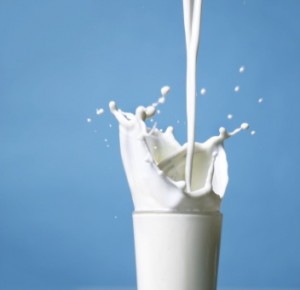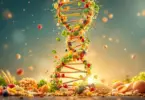By Sayer Ji
For quite some time the link between juvenile onset diabetes (type 1) and cow’s milk consumption has been noted in the scientific literature. You can view 12 such references on our Cow’s Milk Page. In genetically susceptible individuals the consumption of cow’s milk may trigger an autoimmune destruction of the beta cells in the pancreas which produce insulin. A new study, published in the journal Archives of Pediatric and Adolescent Medicine, has shed light on a possible new mechanism behind this connection.
Finnish researchers looked at 1113 infants with a genetic susceptibility to type 1 diabetes and who were randomly assigned to receive one of three infant formulas during the first 6 months of life whenever breast milk was not available:
- Cow’s milk formula (CMF)
- Whey-based hydrolyzed formula (WHF)
- Whey-based formula free of bovine insulin (insulin-free CMF)
[pro_ad_display_adzone id=”110028″]
Beta cell autoimmunity was monitored at ages 3,6, and 12 months and then annually until 3 years of age. The results were reported as follows:
In comparison with ordinary CMF, weaning to an insulin-free CMF reduced the cumulative incidence of autoantibodies by age 3 years in children at genetic risk of type 1 diabetes mellitus.
The likelihood of finding autoantibodies associated with beta cell autoimmunity was 25% lower in the whey-based hydrolyzed formula group, and 61% lower in the insulin-free whey-based formula when compared with the cow’s milk formula group.
Discussion
This study brings to the fore a serious problem associated with drinking the milk of another species. The protein composition within cow’s milk — particularly the beta-casein A1 molecule — is radically different than that found within human breast milk, and even the traditional universal foster milk, goat’s milk. Casein, is a disulfide-bonded, exceedingly hard to digest (for mammals with only one stomach, unlike ruminants which have many) protein that is literally the ingredient that gives Elmer’s glue its gluey consistency (Ever wonder why Elmer the cow is on the front of the bottle?). Humans invented dairy culturing, in part, to harnish the power of “beneficial” bacteria in breaking down the proteins in milk that we are ourselves are not genetically equipped to degrade, e.g. yogurt, kefir. This is also true for lactose, the milk sugar we cannot break down beyond infancy (unless we have a rare, European genetic mutation that confers the ability later into life); we elect the help of Lactobacillus species of bacteria who got their name by breaking down lactose with their bacterial enzyme lactase into lactic acid. The consumption of a food designed for another species (and even for that species only during early development as a calf), will usually have some unintended, adverse effects; the question is: do the benefits outweigh the risks? And if there are risks, is it worth consuming that food when other readily available and nutritious alternatives exist, such as hemp milk, flax milk and coconut milk, to name but a few options on the market?
It is known that cow’s milk proteins such as beta casein A1 may be responsible for causing the human body to lose self-tolerance and form auto-antibodies to a number of self-structures relevant to type 1 diabetes, but this latest study indicates that the presence of bovine insulin may also play a part in stimulating cross-reactivity to our own insulin-producing beta cells, adding a bit more complexity into the picture and underscoring how it is important to respect the profound differences in physiology and biological needs pertaining between species.
For additional research on the adverse health effects associated with cow’s milk consumption* you can view over four dozen such conditions on our Cow’s Milk Page. As far as those who already have type 1 diabetes, we have an elaborate data set on this topic on our Diabetes Type 1 page, as well as an interesting keyword on the topic of natural substances which stimulate beta cell regeneration, as well as a recent article on the topic: Diabetes: An Entirely Preventable & Reversible Disease.
*Note: most of these studies were likely performed on pasteurized, non-organic milk, and therefore may not be relevant to raw, organic milk consumption. On the other hand, some may be remain relevant, as the insulin and beta-casein problem is not going to go away entirely, raw or pasteurized, organic or conventional. We only provide the information to empower you in your self-education, and not to lay claim to the final truth on the matter.
About the Author
Sayer Ji is the founder of GreenMedInfo.com, the world’s largest, evidence-based, open-source, natural medicine database. Follow him on Facebook or Twitter
[pro_ad_display_adzone id=”110027″]







